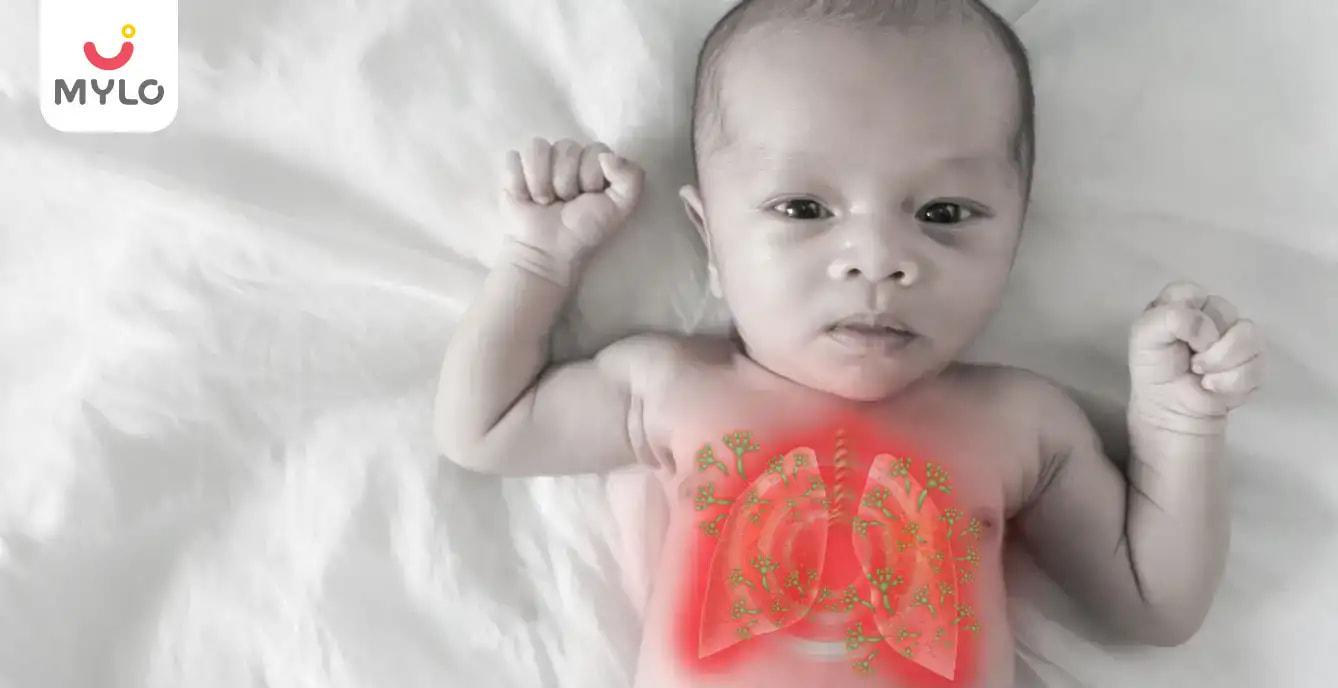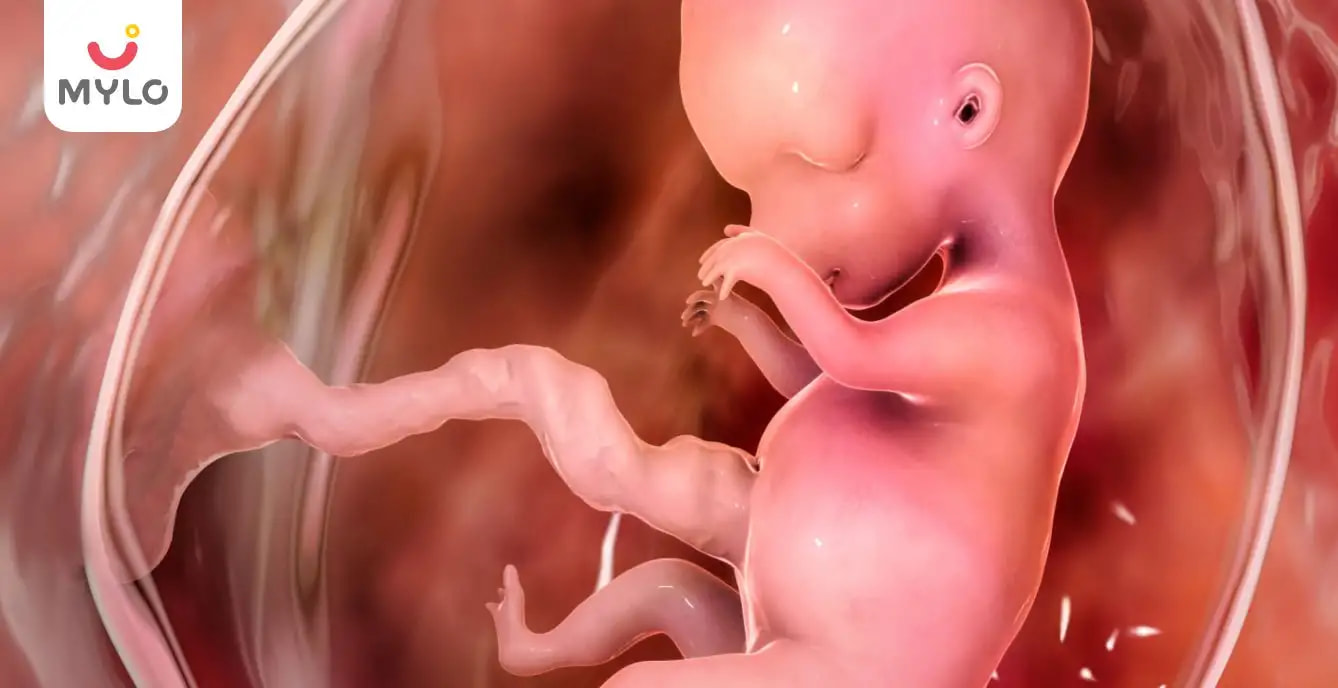Home

Illnesses & Infections

Meconium Aspiration Syndrome: Symptoms, Causes & Treatment
In this Article

Illnesses & Infections
Meconium Aspiration Syndrome: Symptoms, Causes & Treatment
Updated on 3 November 2023
Meconium Aspiration Syndrome (MAS) is a medical condition that affects newborn babies, usually occurring within the first 24 hours of life. When a baby takes their first breath, they can inhale meconium—a greenish-black substance that is produced in a baby’s intestinal tract and passed out during the baby’s first bowel movement. The inhalation of this substance prevents the baby from getting enough oxygen, leading to MAS. In this article, we will explore the symptoms, causes, and treatments for this dangerous condition.
What is meconium?
Meconium is the earliest stool of a newborn. It is thick, sticky, and dark green in colour. Unlike later stools, meconium is composed of materials ingested while in the womb. Meconium aspiration syndrome (MAS) occurs when a newborn inhales meconium, which can happen before or during delivery. When meconium is inhaled, it can cause lung infection and pneumonia. MAS can be a serious condition that requires immediate medical attention.
Meconium aspiration syndrome causes (MAS)
When meconium is aspirated into the lungs, it can cause inflammation and damage to the lung tissue. This can lead to respiratory distress and even death. MAS is more common in premature babies and babies who are small for gestational age. It occurs in about 1-2% of births overall.
The most common symptom of MAS is grunting respirations immediately after birth. Other signs include rapid breathing, cyanosis (a bluish tint to the skin), low blood oxygen levels, and abnormal chest x-rays. Treatment of MAS generally involves providing supportive care to help the baby breathe until the lung damage heals. This may require mechanical ventilation and oxygen therapy. In some cases, surgery may be necessary to remove meconium from the lungs or repair damaged lung tissue.
Symptoms of meconium
While meconium is usually harmless, it can be dangerous if inhaled by a newborn. MAS can cause difficulty breathing, pneumonia, and other respiratory problems.
How to know if baby passed muconium in womb? The most common symptom of MAS is trouble breathing. Other symptoms may include:
- A bluish tint to the skin
- Rapid breathing
- Grunting noises while breathing
- Coughing
- Wheezing
Diagnosis of meconium
The symptoms of MAS vary depending on how much meconium the baby inhales. They range from mild respiratory distress to severe respiratory failure. In some cases, the baby may also have other problems, such as pneumonia or an infection.
If your baby has any of these symptoms, it's important to get medical help right away. A doctor will likely do a physical exam and order tests, such as a chest X-ray or blood test, to confirm the diagnosis.
Treatment of meconium
The first step in treating MAS is to stabilize the baby's breathing. This may involve giving the baby oxygen through a mask or nasal cannula, providing positive pressure ventilation through a face mask or endotracheal tube, or both. Once the baby's breathing is under control, doctors will work to clear the meconium from the lungs. This may be done by suctioning the meconium from the mouth and nose, performing a bronchoscopy to remove it from the airways, or giving the baby medications to help loosen and expel it.
In some cases, MAS can lead to pneumonia or other lung infections. These babies will need additional treatment with antibiotics. Some babies may also need supplemental nutrition if they are not able to feed well on their own. Babies with MAS usually recover without any long-term problems, but they will need close monitoring during their hospital stay and after they go home.
What problems might arise from meconium?
When meconium is aspirated into the lungs, it can cause inflammation and irritation. This can lead to difficulty breathing, decreased oxygen levels in the blood, and pneumonia. MAS can be a serious condition, but it's usually treatable with antibiotics and other supportive care.
How to prevent meconium
MAS can cause severe respiratory problems and even death. It is more common in premature babies, but can also occur in full-term babies.
There are several things that can be done to prevent MAS:
- Perform regular ultrasounds during pregnancy to check the baby's position. If the baby is in the breech position (bottom first), there is a higher risk of MAS. Your doctor may recommend a cesarean section (C-section) delivery to reduce this risk.
- Avoid using drugs during pregnancy that could increase the risk of MAS, such as cocaine or methamphetamine. These drugs can cause the baby to aspirate meconium while still in the womb.
- Do not smoke cigarettes during pregnancy. Smoking increases the risk of MAS and other respiratory problems in newborns.
- Ask your doctor about methods to speed up delivery if you go into labour before 37 weeks gestation. This may reduce the amount of time the baby spends exposed to meconium before birth.
We hope that our blog post was able to give you a clearer idea about what exactly Meconium Aspiration Syndrome is and how to deal with it. Understanding the symptoms of MAS is helpful as far as seeking medical help at the right time is concerned. If you found the information in this blog helpful, visit Mylo Store to read more blogs related to healthcare and parenting.



Written by
Roohi Kalra
Get baby's diet chart, and growth tips

Related Articles
Related Questions
Influenza and boostrix injection kisiko laga hai kya 8 month pregnancy me and q lagta hai ye plz reply me

Hai.... My last period was in feb 24. I tested in 40 th day morning 3:30 .. That is faint line .. I conculed mylo thz app also.... And I asked tha dr wait for 3 to 5 days ... Im also waiting ... Then I test today 4:15 test is sooooo faint ... And I feel in ma body no pregnancy symptoms. What can I do .

Baby kicks KB Marta hai Plz tell mi

PCOD kya hota hai

How to detect pcos

RECENTLY PUBLISHED ARTICLES
our most recent articles

Diet & Nutrition
গর্ভাবস্থায় আলুবোখরা: উপকারিতা ও ঝুঁকি | Prunes During Pregnancy: Benefits & Risks in Bengali

Diet & Nutrition
গর্ভাবস্থায় হিং | ঝুঁকি, সুবিধা এবং অন্যান্য চিকিৎসা | Hing During Pregnancy | Risks, Benefits & Other Treatments in Bengali

Women Specific Issues
স্তনের উপর সাদা দাগ: লক্ষণ, কারণ এবং চিকিৎসা | White Spots on Nipple: Causes, Symptoms, and Treatments in Bengali

Diet & Nutrition
গর্ভাবস্থায় পোহা: উপকারিতা, ধরণ এবং রেসিপি | Poha During Pregnancy: Benefits, Types & Recipes in Bengali

Diet & Nutrition
গর্ভাবস্থায় মাছ: উপকারিতা এবং ঝুঁকি | Fish In Pregnancy: Benefits and Risks in Bengali

Diet & Nutrition
গর্ভাবস্থায় রেড ওয়াইন: পার্শ্ব প্রতিক্রিয়া এবং নির্দেশিকা | Red Wine During Pregnancy: Side Effects & Guidelines in Bengali
- ইনার থাই চ্যাফিং: কারণ, উপসর্গ এবং চিকিৎসা | Inner Thigh Chafing: Causes, Symptoms & Treatment in Bengali
- গর্ভাবস্থায় ব্রাউন রাইস: উপকারিতা ও সতর্কতা | Brown Rice During Pregnancy: Benefits & Precautions in Bengali
- Velamentous Cord Insertion - Precautions, Results & Safety
- Unlock the Secret to Flawless Skin: 7 Must-Have Qualities in a Face Serum
- Unlock the Secret to Radiant Skin: How Vitamin C Serum Can Transform Your Complexion
- Gender No Bar: 10 Reasons Why Everyone Needs a Body Lotion
- Unlock the Secret to Radiant Skin How to Choose the Perfect Body Lotion for Your Skin Type
- Top 10 Reasons to Apply a Body Lotion After Every Bath
- Communication in Toddlers: Milestones & Activities
- How to Improve Vocabulary for Toddlers?
- A Comprehensive Guide to Understanding Placenta Accreta
- Vulvovaginitis in Toddlers Causes, Symptoms and Treatment
- A Comprehensive Guide to Understanding Cerebral Palsy in Children
- Bitter Taste in Mouth During Pregnancy: Understanding the Causes and Remedies


AWARDS AND RECOGNITION

Mylo wins Forbes D2C Disruptor award

Mylo wins The Economic Times Promising Brands 2022
AS SEEN IN

- Mylo Care: Effective and science-backed personal care and wellness solutions for a joyful you.
- Mylo Baby: Science-backed, gentle and effective personal care & hygiene range for your little one.
- Mylo Community: Trusted and empathetic community of 10mn+ parents and experts.
Product Categories
baby carrier | baby soap | baby wipes | stretch marks cream | baby cream | baby shampoo | baby massage oil | baby hair oil | stretch marks oil | baby body wash | baby powder | baby lotion | diaper rash cream | newborn diapers | teether | baby kajal | baby diapers | cloth diapers |








